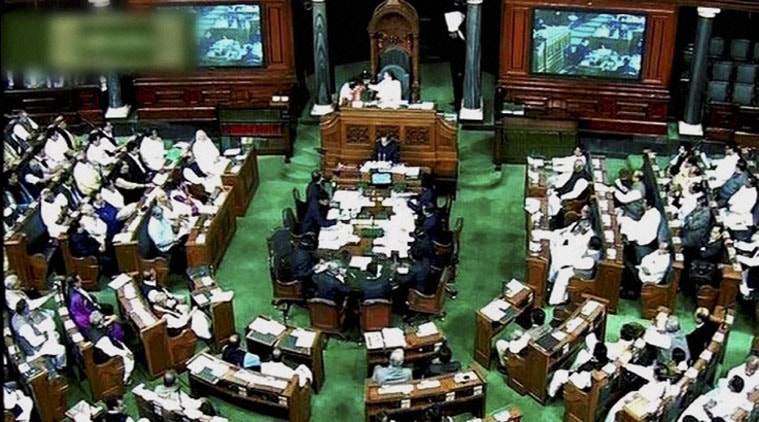Stay updated with the latest - Click here to follow us on Instagram
Why wasn’t CBI chief sent on leave, asks Congress as bill clears LS
The bill was passed amid stiff resistance with Cong alleging that it was aimed at keeping the largest opposition party out of the selection process.
 The bill was passed by voice vote but not before a division of votes on its consideration as well as an amendment moved by BJD member Tathagat Satpathy, which was rejected.
The bill was passed by voice vote but not before a division of votes on its consideration as well as an amendment moved by BJD member Tathagat Satpathy, which was rejected.
The Lok Sabha on Wednesday showed the green light to a bill changing the law on the appointment of the CBI director despite opposition to a quorum clause which the Congress alleged was aimed at keeping the leader of the largest Opposition party out of the selection process.
The government rejected the charge, saying the amendment was being done to “uphold the credibility of CBI” and “making the process of the appointment of the CBI director more transparent, more smooth”. The Delhi Special Police Establishment (Amendment) Bill, 2014 was passed after the BJD insisted on a division of votes.
Congress leader M Veerappa Moily, participating in the debate on the bill earlier, questioned the government on why it had not asked the present CBI director to go on leave. “If any person is misusing or abusing a particular office, then at least ask him to go on leave. This has not been done here. I never wanted to quote certain allegations, but the CBI chief himself is making allegations against the Attorney General of India and Attorney General is making allegations against the CBI director… it is never heard of. These things are happening before the Supreme Court,” Moily said.
He and others opposed to the bill drew the attention of the House to section (2) of clause 2 (b) which states “No appointment of a director shall be invalid merely by reason of any vacancy or absence of a member in the committee”.
The proposed change in law provides for a selection committee comprising the Prime Minister, Chief Justice of India and leader of the single-largest Opposition party — under the existing law, the selection panel includes the Leader of Opposition.
To take his argument forward, Moily tried to draw a parallel and referred to “anarchy” in North Korea and “good parliamentary practice” in South Korea.
“Institutions are important for nurturing democracy of any country. You can see North Korea and South Korea. The people are of the same ethnic group. But the parliamentary and democratic institutions, built in South Korea, are not built in North Korea. That is why the North Korea suffers. Whereas there is good parliamentary practice and accountability in South Korea, there is anarchy and maladministration in North Korea.”
Mallikarjun Kharge, leader of the Congress in Lok Sabha, said the government was trying to “suppress” the Opposition and “make it bow its head” simply because it didn’t have the numbers. “We may be 10, 20, 40 or 50, we are not going to bow down, even if we have to get ourselves beheaded,” he said.
Rejecting the charge on the quorum clause, Minister of State Jitendra Singh said “some apprehension has been expressed that this is possibly done with an ulterior motive or a deliberate motive to include this clause of absence, vacancy. I would request Opposition benches to just contemplate or imagine a situation where the absence could apply even to the Prime Minister or the Chief Justice of India. So, we never meant that in the absence of the Leader of the Opposition or the leader of the largest party, we would go ahead. It could be any of the three members. Please keep in mind, the three members are the Prime Minister of India, the Chief Justice of India and the leader of the Opposition.”
“…It is not something unprecedented that is being done and it is not something that is being done with ulterior motive,” Singh said.







